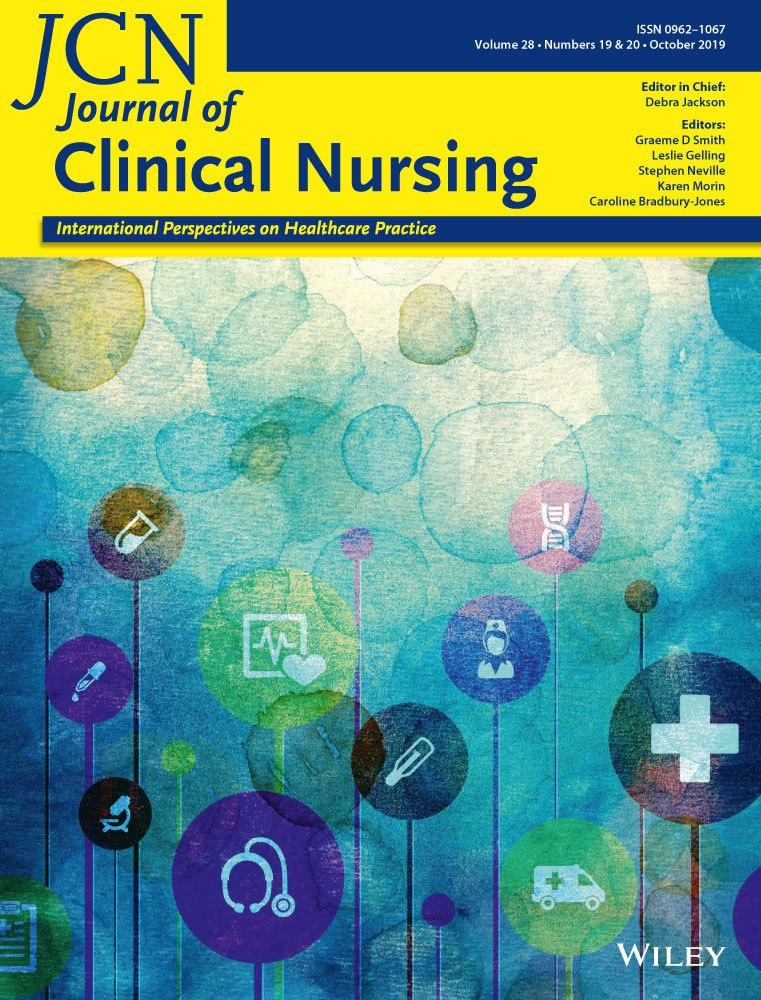Two-month breathing-based walking improves anxiety, depression, dyspnoea and quality of life in chronic obstructive pulmonary disease: A randomised controlled study
Funding information
This study was supported by grants from the National Taiwan University Hospital, Taiwan (104-2758).
Abstract
Aims and objectives
To examine the effects of the two-month breathing-based walking intervention and its follow-up on anxiety, depression, dyspnoea and quality of life in patients with chronic obstructive pulmonary disease.
Background
Mind–body-related exercises improve bio-psychological symptoms and quality of life in chronic diseases, but these improvements are not proven for chronic obstructive pulmonary disease.
Design
This was a randomised controlled study and applied the Consolidated Standards of Reporting Trials (CONSORT) statement.
Methods
Outpatients diagnosed with chronic obstructive pulmonary disease were recruited from a medical centre in Taiwan and randomly assigned to two groups. The walking group (n = 42) received breathing, meditation and walking for two months, and the control group (n = 42) did not. Data from the outcomes of anxiety, depression, dyspnoea and quality of life were collected at baseline and in Month 1, Month 2 and Month 3. Clinical trial registration was done (ClinicalTrials.gov.: NCT03388489).
Findings
The results showed significant changes in anxiety, depression, dyspnoea and quality of life in the walking group across three months, compared to those in the control group and at baseline.
Conclusion
This breathing-based walking intervention is promising to achieve bio-psychological well-being for patients with chronic obstructive pulmonary disease.
Relevance to clinical practice
This breathing-based walking, as a mind–body exercise, could serve as an evidence-based nursing care that contributes to improving anxiety, depression, dyspnoea and quality of life in stable chronic obstructive pulmonary disease outpatients. The feasibility and acceptability of the breathing-based walking were met the requirement of the chronic obstructive pulmonary disease outpatients, which could be considered as home-based exercise.
CONFLICT OF INTEREST
The authors have no financial or any other kind of personal conflicts with this paper.




